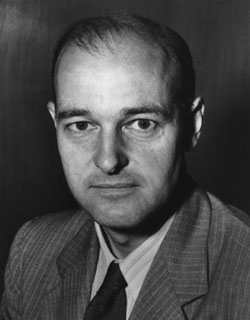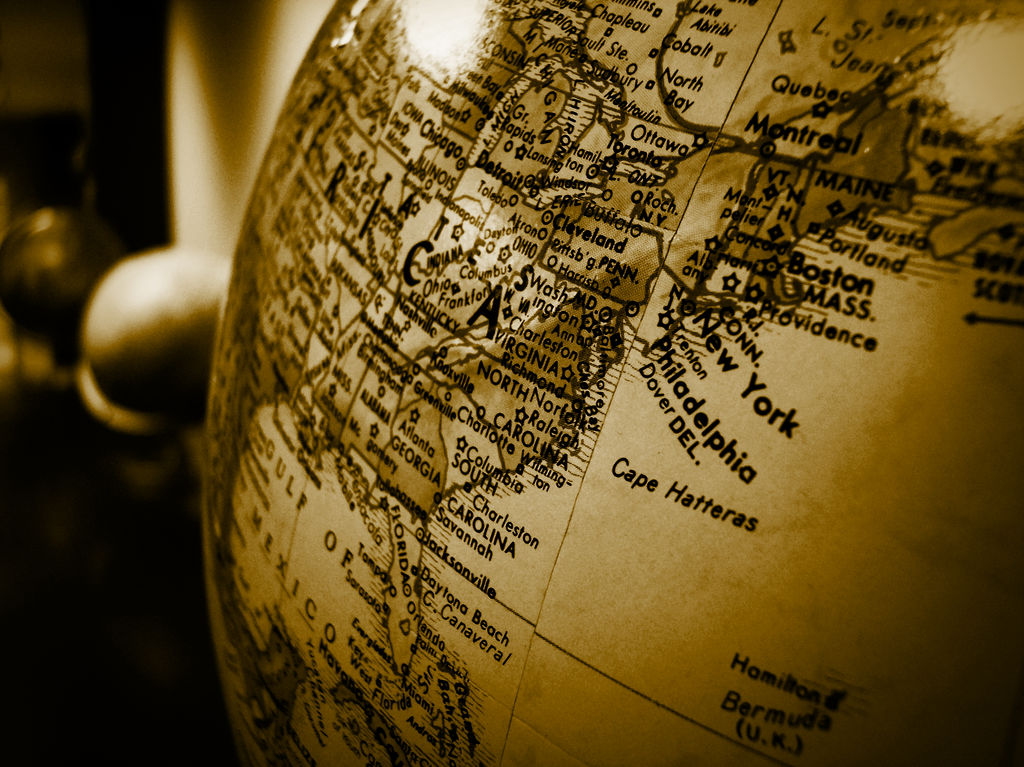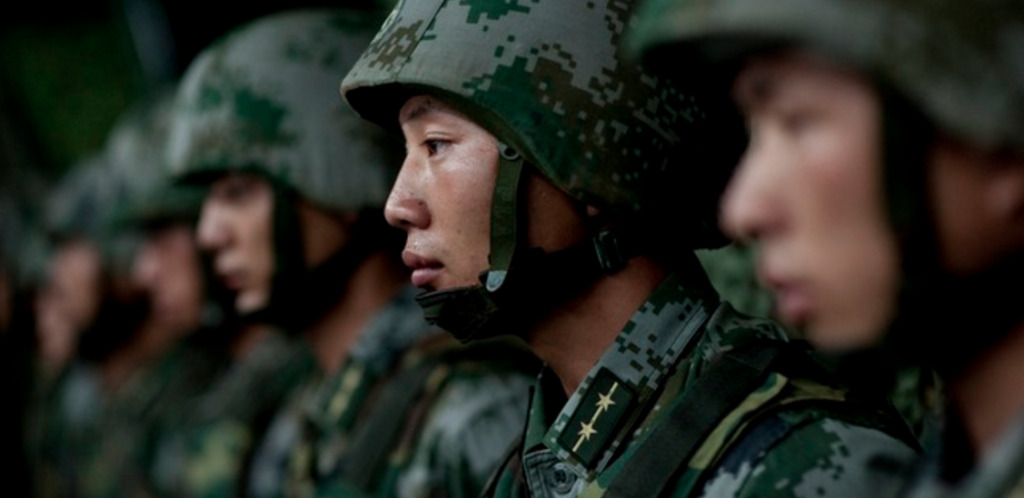This piece is part two of “Luke’s Musings”

There really ought to be a roaring chorus of foreign policy experts and grand strategists continually screaming to the world: “I DON’T KNOW WHICH GRAND STRATEGY AMERICA SHOULD TAKE!” because, judging by the relative silence on questions of grand strategy (aside from notable exceptions like Barry Posen’s recent book, Restraint), it would appear that most of the foreign policy establishment is just as befuddled by the current global geopolitical situation as the American population at large.
Nothing, foreign policy establishment? Okay then, I’ll start.
I don’t know which grand strategy America should take. I’m not sure where our country is headed in world affairs, or which way it should be headed. I couldn’t define “American national interest” for you in any fewer than eight incoherent sentences. I couldn’t rank the strategic theaters in order of their importance, nor could I provide you with any worthwhile and specific doctrines for creating the sort of world America wants to build. On that note, I couldn’t even tell you what kind of world America wants to build, or if America even wants to build a world anymore.
And I’m not alone. I’m sure you’d be hard-pressed to find anyone in DC or elsewhere with a solid vision for the world of the future, combined with policy experience and the expertise necessary to get there. We have our experts but we have yet to find our Kennan.
Here, in 2014, just as in 2001 and in 1991, our country is faced by a shock. In our case, that shock is the rapid disintegration of world order and international norms symbolized by the ascent of IS, the Russian annexation of Crimea, the tension in the East and South China Seas, and the nuclear uncertainty of Tehran. Perhaps this is less cinematic a shock than the collapse of the Soviet Union or the attacks on the World Trade Center and Pentagon, but in questions of strategy the effect is similar. We are faced with a nebulous new world, far different from the comfortable, if formidable, world of the Cold War, and we do not know what to do.
The strategists of the early American republic were masters of power politics, since that was the only way they were able to keep their small, developing empire of liberty sovereign at home and abroad in the midst of the ravenous ‘scourgings’ of European imperial powers. The early presidents learned from such humiliations as the XYZ Affair and the Burning of Washington. They succeeded in this endeavor, and soon were able to inflict ‘scourgings’ of their own against the Mexicans, Canadians and Native Americans. They also managed to pay off or drive out the remaining European powers in the Americas, and were thus able to pursue a strategy of hemispheric domination and relative great power status among the powers of Europe.

After the Civil War and subsequent rapid industrialization, the American encounter with the world, from the beginning a massive and complicated affair, expanded rapidly. It was mere decades from the reuniting of the Union that that Union was able to extend sustained imperial power far beyond the confines of its home hemisphere. In these decades the United States inhabited what might almost be described as a concert system: great powers interacted and competed, but acknowledged each other as relative equals, if competitors, in a series of gentlemen’s agreements and other informal checks. The British empire was the bulwark of this system – an umpire of sorts – and the global trade and finance system it maintained lifted all boats.

But as the British empire declined as the bulwark of international order in the late 19th and early 20th centuries, so the informal concert system decayed, and so the empires of Europe, Russia, Japan and America grew more hostile and less understanding of each other’s similarly cynical (and quite Realist) interests. The gentlemen’s agreements gave way to purer power politics, power politics soon fueled by nationalism and ideological zealotry. The First World War shocked the civilized world and sounded the death knell for the British empire. From 1918 to 1939, uneasy power politics glossed by international agreements formed the primary interactions within the international system. When Europe was plunged again into war, the dynamic of hyper-Realist great power competition fueled by ideology and nationalism reached its zenith. The concert system gave way to a balance of power system, and the balance of power system gave way to great power war.
Through all this, America participated as brutally as did any other power. But when the peace was pulled from the ashes of Dresden and Hiroshima, the great empires of the last few decades were no more. Only the USA and the USSR remained. And so the American strategists of the day found themselves in a terribly unprecedented situation: two great powers, hegemonic over their realms, each professing a contrasting ideology and neither trusting the other in any way at all. It was not only a cold war, but also a frozen one. Not an era of great power understanding. Not one of great power war. And much more tense than an era of great power participation. This was the strangest arrangement the statesmen in Washington had ever seen.
Fortunately George Kennan, legendary diplomat and Sovietologist, and other such lights as Dean Acheson and John Foster Dulles, rose to the occasion and, devising the doctrine of containment, led the United States through an era of bipolar power balancing. As with every era, the strategies shifted with each administration. Truman and Eisenhower stayed true to containment and world order building. Nixon practiced concert-like détente that resembled retrenchment. And Reagan employed aggressive rollback. However, the broader theme disciplining the foreign policy of each Cold War president was the great challenge of an attrition-based balance of power, a battle between a Communist scorpion and a democratic scorpion in an eight-ounce bottle. Though strategy changed incrementally, the goal was clear, and the broader grand strategy of the Cold War generally remained the same.

But with the end of the Cold War, the demise of our only enemy destroyed whatever discipline there was in American foreign policy in general. George H.W. Bush, Cold War gladiator and prudent statesman as he was, held the fort for a few more years. Indeed, had he held two terms, the 1990s might have been a better time for world order. But when America returned to politics as usual with Clinton, the discipline that had held sway over American foreign affairs since Franklin Roosevelt was set aside.
The policy of the Clinton administration, fazed by the fall of the Berlin Wall and the disintegration of the Soviet Union, made a point of expanding and entrenching the liberal world order through multilateralism, free trade, the promotion of human rights and America taking the role of a global parent, lecturing and helping but not attacking. What military interventions occurred were undertaken primarily in the service of humanitarianism rather than strategy. This was possible due to the relatively peaceful nature of that decade, and though the Clinton foreign policy didn’t backfire, it certainly was not effective at expanding the Roosevelt-Eisenhower-Bush world order still in effect in the Cold War’s aftermath.
The shock of 9/11 under the Bush Presidency terrified the nation and awoke its deep Jacksonian passions. The Bush years, when America became something of a global principal, the world’s police officer and vindicator of every people’s rights, slayer of monsters, and flamethrower of liberty, was in effect a revitalization to an extreme of the classic Reagan foreign policy: unabashed nationalism, emphasis on force and universal humanism mixed with American ideals. The one aspect of the Reagan foreign policy it lacked was a true geopolitical imperative, and the war on terrorists hiding in caves was nowhere near sufficient for a global grand strategy. Everyone who lived through it knows how far it overreached, and the prospect of an America exhausted and tied down in the Middle East awakened the ambitions of regional powers the world over.
When President Obama came to office, the underpinnings of the chaos we see around us now were then in their natal stages, including Russian aggression in Georgia, worrisome Chinese militarism, continued Iranian nuclear intransigence and anarchic violence in Iraq. Striving to repudiate his predecessor’s legacy, Obama adopted a strategy of near-total restraint with a blush of Wilsonian idealism, which was more an abandonment of strategy than a strategy in itself. The new acquiescence to regional powers resembled an extreme overreach of Nixonian détente, not quite bordering appeasement but not at all displaying the prudence and cunning of actual détente. This visionless, aimless wandering about the international stage continues forth and the threats to world order continue to grow. I foresee that sometime after the Obama presidency, a statesman with the cunning of a Kennan or Kissinger will have to formulate a new grand strategy for a changing world if American power is to survive and flourish. The critical question, after two and a half decades of failed iterations of old foreign policies, is this: what is that strategy? What are our options? What are our imperatives? What do we want?
It is clear, from the above survey of American strategic history, that America has employed various grand strategies throughout its existence as a nation as the global situation changed, but that its general interests stayed the same throughout and thus ensured that its grand strategy has remained active in the world. Which grand strategy, however, was a contentious question in 1789, in 1812, in 1845, in 1898, in 1914, 1941, 1945, and again in 1991 and 2001 and now 2014. There has never been a moment when the paths of history were clear to history’s makers, and the same holds true today. A brief survey of some of the strategies we’ve tried as a nation might help to clarify things.
Isolationism is clearly out. It’s not clear that America pursued a hands-off strategy at any point in her history, and even if it were and isolationism had been a successful strategy, it cannot work now since there is too much danger in the establishment of a Eurasian hegemon to allow one to arise and potentially threaten the American homeland and the American way of life. Our interests reach every corner of the Earth; so must our power.
Offshore Balancing, most famously promoted by John Mearsheimer, is a tempting option, for it ensures American control of the seas and allows America to be involved in other regions without expending serious blood and treasure fighting various proxy wars. It is not clear, however, that sea power, while strategically critical, is able to do all the necessary work in preserving the balance of power and keeping potential hegemons from emerging. Sea power is a blunt instrument; power politics is a precise art. Offshore Balancing is not enough.
The Balance of Power seems to be at the core of every nation’s foreign policy, and that includes America’s. At a certain level, we must prevent the emergence of any power in Eurasia, Africa, or Latin America that is capable of dominating its region and threatening American sea power in the regional seas. Yet, we must expend as little blood and treasure in such balancing and containment as possible so that we play one nation against another to ensure that neither can dominate its region. This would be the obvious candidate for a future American strategy; however, it must be remembered that Balance of Power systems are typically beset by terrible systemic wars.
Similar to the Balance of Power, the Concert of Powers presupposes that competition in the international system is a tragic and constant game, which no nation can escape. But unlike the balance of power, a concert system places a premium on a phenomenon I have called Power Pluralism, the sustained commitment of various powerful states to respect each others’ sovereignty while pursuing their own interests. This results in a network of informal networks and gentlemen’s agreements, and wars and other competitions tend to be regarded more as business as usual than as aberrations from the norm. Typically, a Concert system affords each significant power its own sphere of influence. From a humanitarian perspective, this system has the potential to validate terrible violations of human rights.
Another significant strategy, arguably the basic reality the United States has known since 1991, is hegemony: an informal domination of the international system by a single power. That power maintains a network of alliances and makes willing allies dependent upon it, while cowing potential rivals well before they become strong enough to truly threaten. Unfortunately, as the Romans discovered, hegemony is prohibitively expensive, and also has the tendency to allow the hegemonic power to become decadent, thus setting the stage for its decay and the return of violence and competition by upstart powers and ambitious players.
Finally there is domination. Domination could also be called formal hegemony. It is an effective grand strategy because it assures the complete security of the state; however, it is prohibitively expensive and, in the absence of threats opens the door to decadence. States exert dominance over their own territory, and only imperfectly at that. Can they really be expected to exert dominance over their entire region, or the entire globe?
I would guess, right now, that the right idea for a new grand strategy lies somewhere between the Balance of Power and the Concert of Powers. The United States must ensure that no power that can threaten the American way of life arises, while simultaneously maintaining cordial relations with all legitimate powers around it. I have argued something to this degree here and here; I will likely continue writing on the subject, with greater specifics and case studies as time goes on.
Truth be told, I have no idea WHAT America’s grand strategy is going to be in the incoming years. But that is no excuse not to talk about it. If the American nation is to see brighter days in this darkening world, then our statecraft is going to have to do a better job than it has done these last couple of decades. Further discussion of the fundamentals of America’s role in the world is a critical first step.
The views expressed by the author do not necessarily reflect those of the Glimpse from the Globe staff, editors, or governors.







